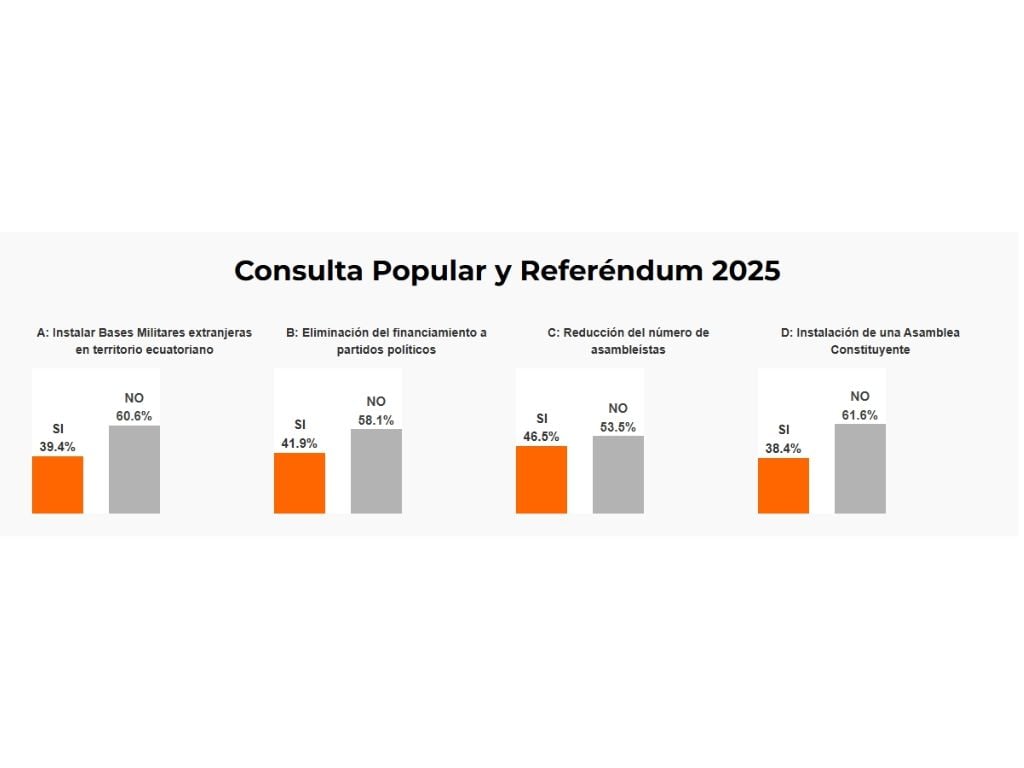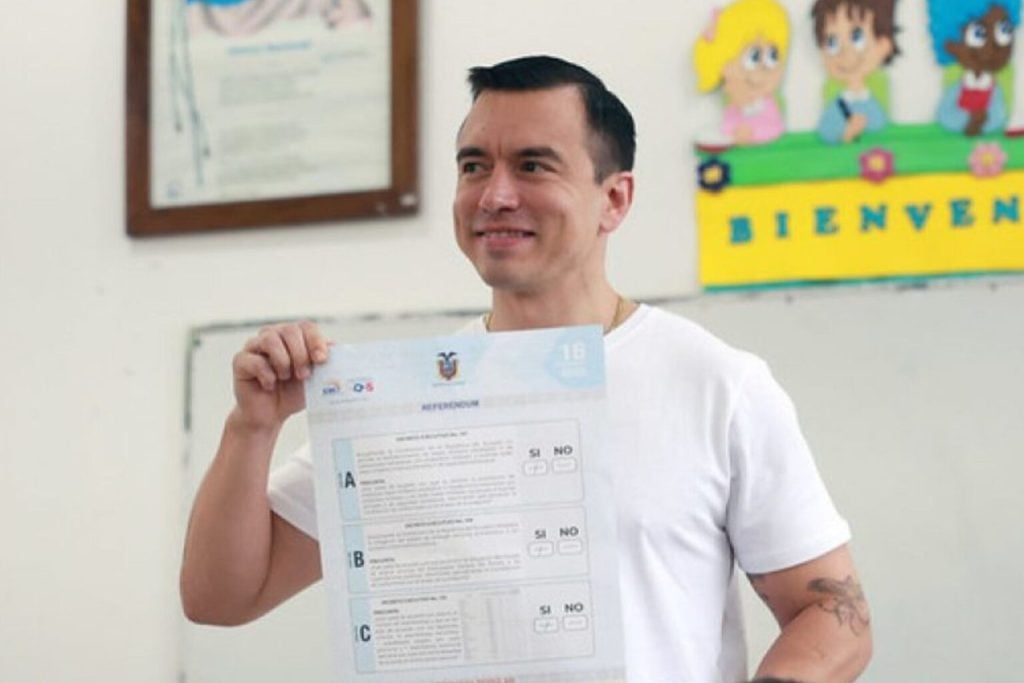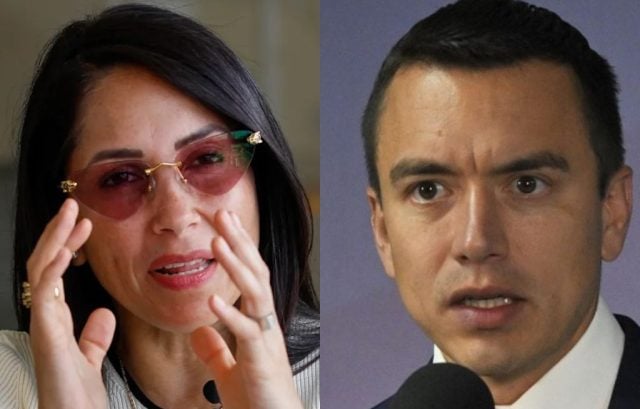Original article: “El pueblo dijo No” en Ecuador: Luisa González habla del rechazo a bases militares extranjeras y a la campaña millonaria de Noboa
Ecuador Votes ‘No’: Luisa González Discusses Rejection of Foreign Military Bases and Noboa’s Million-Dollar Campaign
Former presidential candidate Luisa González characterized the ‘No’ victory in the recent Referendum as a decisive rejection of foreign military bases and President Daniel Noboa’s «million-dollar media campaign,» in a day analysts are calling a «devastating blow» to the government.
In an interview with TeleSUR, González denounced the extensive use of public funds to sway public opinion.
«The Executive spent over seven million dollars on advertising to govern ‘from the networks, from the agenda, from dirty campaigns, from lies,'» she stated.
While she noted that «the dominant media have been bought,» she celebrated that «the Ecuadorian people are no longer falling for these manipulations.»
Hope Triumphs Over Corruption and the Hate Campaign
For the former candidate, the voting results conveyed a clear message against corruption and the reestablishment of public contracts «among friends and family.»
She argued that this outcome demonstrates that «hope and the belief in better days have triumphed over the hatred that this government tries to instill.»
Rejection of Foreign Interference
In her interview with TeleSUR, González addressed the citizenry’s rejection of foreign military presence. She claimed the Ecuadorian people saw through President Noboa’s intentions and voted against them.
«What he really cares about is dragging our country, which has historically been a nation of peace, into an international armed conflict, serving as a backyard for the United States,» she warned.
Recalling historical memory, she mentioned the experience with the Manta base, asserting that «after its departure, security significantly improved. We made Ecuador the second safest country in Latin America.»
«The people have said they do not want foreign interference; our homeland, sovereignty, and territory must be respected,» she emphasized.

The People Said ‘No’
The ‘No’ option prevailed in all four questions of the Referendum, according to 98% of the ballots counted by Ecuador’s National Electoral Council (CNE).
The question regarding the potential return of U.S. military forces to Ecuadorian territory for security cooperation agreements faced 60.64% rejection, while 39.36% voted in favor.
Concerning the elimination of financing for political parties, 58.97% voted against and 41.93% voted in favor.
Regarding the reduction of assembly members, 53.47% opposed this initiative, while 46.53% supported it.
On the establishment of a Constituent Assembly proposed by Noboa, 61.65% of Ecuadorians voted ‘No’ and 38.35% supported it.

Political Setback and Reprisal Against Noboa’s Administration
The results of the referendum are interpreted by analysts as a political setback and punishment for Noboa’s government.
Mauro Andino, a political analyst, described the event as a «devastating blow» or a «shock» against the right-wing president.
Andino expressed that the voting message is clear, suggesting that citizens are «deeply dissatisfied with his government model and way of doing things.»
In his view, the rejection revealed that the material living conditions «have not improved or have worsened,» stemming from a lack of management, political inactivity, and absence of results from Noboa’s administration.
Adding to this issue is the government’s neglect of crucial matters such as public services, health, social security, and employment.
Furthermore, the ongoing surge in crime, with 6,797 intentional homicides recorded between January and September 2025, according to the Ministry of Interior, further undermined government credibility.
According to Verónica Silva, a former vice-presidential candidate, the climate of discontent in Ecuador arose because Noboa attempted to offer a «useless» solution that did not address real issues.
In a statement to Radio Pichincha, she argued that Ecuadorians felt the referendum did not resolve problems such as insecurity, lack of medicine in hospitals, or the situation of children dropping out of school.
The Defeat of Fear
Political analyst Agustín Burbano de Lara stated that the result represents a «defeat of fear.» He noted that Daniel Noboa has governed «by managing frightened populations» and that the vote demonstrated the existence of an electorate that «is not being seduced or represented by the right or the far right.»
In this context, analysts agreed that the government is compelled to conduct a thorough review of its management. Verónica Silva issued a stern warning: if Noboa does not change course, he «will have to look in the mirror of past presidents with ‘sad outcomes,’ like Jamil Mahuad, Lucio Gutiérrez, or Guillermo Lasso.»
Burbano de Lara added an essential layer to the analysis, highlighting the grassroots nature of the campaign for the ‘No,’ which, he said, was «entirely civic» and not led by traditional politicians, thereby emphasizing the organic and popular origins of this powerful message to those in power.


